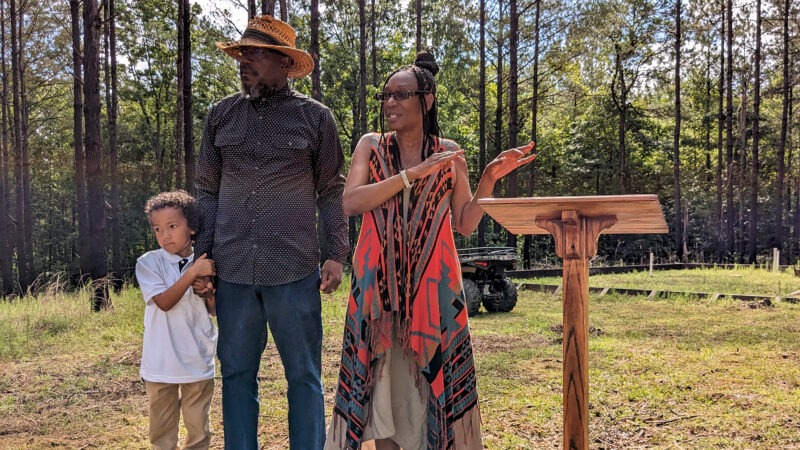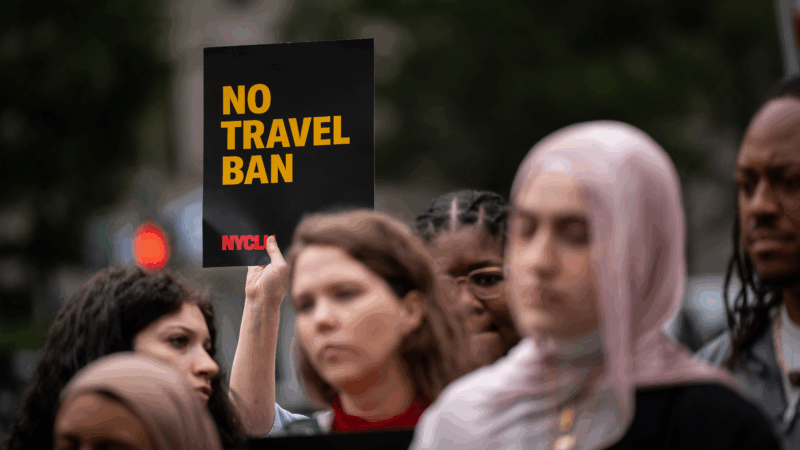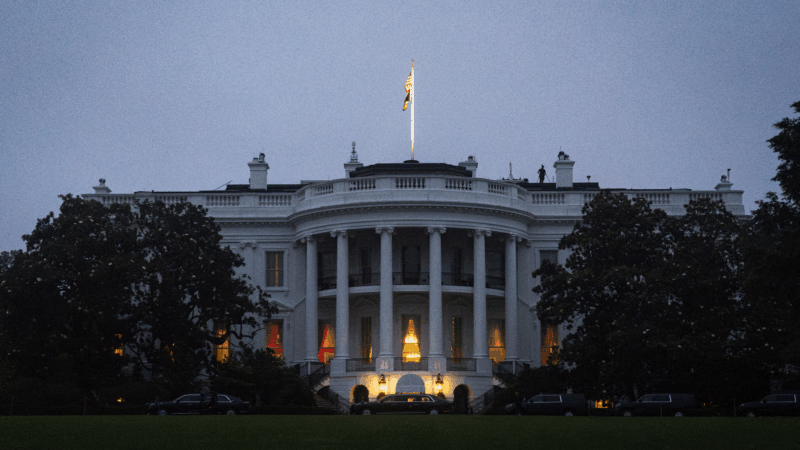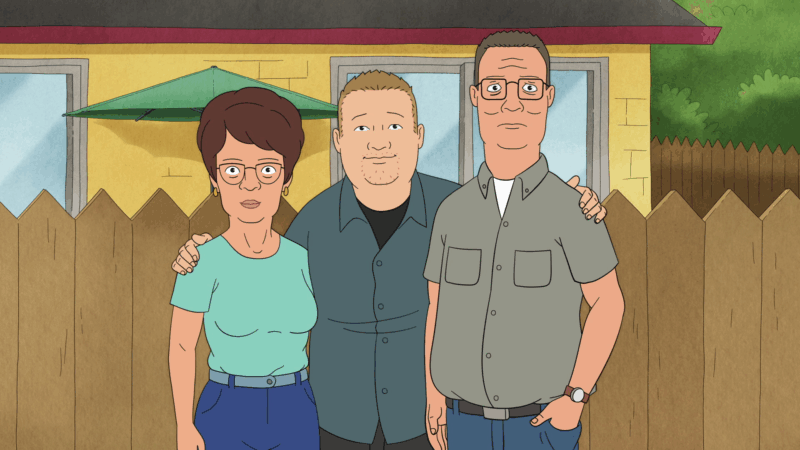Deadline approaches for USDA loan discrimination funds for underserved farmers
Kevin Springs stands between his wife, Teresa Ervin-Springs, and his grandson at their farm, TKO Farms, on June 19, 2023, in McCool, Mississippi. The couple has broken ground on a future training center on their farm to preserve ancestral Black farming knowledge.
The deadline for financial assistance for farmers who’ve faced discrimination when applying for United States Department of Agriculture (USDA) farm loans comes Saturday, January 13.
Known as the Discrimination Financial Assistance Program (DFAP), $2.2 billion in funding is available as part of the Inflation Reduction Act, a federal law passed in 2022. USDA started accepting applications for the program in July.
Five local offices in Alabama, Mississippi and Louisiana were created to help people apply. The last week of accepting applications has been busy with trying to meet the deadline, said Howard Gunn Jr, an agriculture consultant with Ag-Grow Consultants who’s been hands-on in Mississippi.
“It has been a whirlwind. [There’s] so much need out there, and I know it won’t cover all the needs of the people,” Gunn said.
The program is just one effort to acknowledge decades of discrimination during the loan process for women and minority groups. Black women, in particular, experienced a lot of barriers in getting this kind of funding, Gunn said. This is because they are at the intersection of racial and gender discrimination, according to One Earth, a nonprofit focused on climate action.
Even with this type of historic investment, advocates believe more needs to be done to address the systemic issues Black farmers face when trying to access USDA funds. DFAP is a step in the right direction, Gunn said, but “it can never pay back what was lost when it comes to farmland and the opportunity to farm.”
“On many instances, you look at the economic loss that occurred from the 70s or in the 80s,” Gunn said. “Had I received the funding that I went in requesting, how far would I have been?”
For some, the aid has come too late. Some farmers who deserve the funds have already died. But Gunn said people like him are signing up as many people as they can.
“This is a help. I don’t know if anything else will ever come this way in this fashion, but it’s here, and we are doing our best to put the word out,” Gunn said.
This story was produced by the Gulf States Newsroom, a collaboration between Mississippi Public Broadcasting, WBHM in Alabama, WWNO and WRKF in Louisiana and NPR.
How Trump’s travel ban could disrupt the way knowledge about health is shared
Global health specialists talk about the consequences of the full or partial ban on travel to the U.S. from 19 countries.
Trump threatens Iran’s supreme leader, escalating his rhetoric about the conflict
President Trump called Iran's Supreme Leader Ayatollah Ali Khamenei an "easy target" but said, "We are not going to take him out (kill!), at least not for now."
With the World Cup a year away, the U.S. men’s soccer team needs a shot in the arm
A handful of dreadful losses — plus some drama between the team's biggest star and its new head coach — has the USMNT looking for a badly-needed rebound in this summer's Gold Cup tournament.
Joey Chestnut will return to the Coney Island hot dog contest after last year’s beef
Joey Chestnut was banned from the contest that made him famous after signing an endorsement deal with a company that makes plant-based proteins. The 16-time champ returns to Coney Island on July 4th.
New books out this week offer catastrophes that at least profess to be just fantasies
The new books publishing this week may get quite heavy, laden as they are with family tragedy, psychopathy and heartbreak — but at least they are fiction.
The summer TV season is almost here. Here’s what to watch.
Here are some of the best summer TV shows — from Marvel reviving its fortunes with a new armored hero to TV's most compelling serial killer returning for a bite of the Big Apple.









